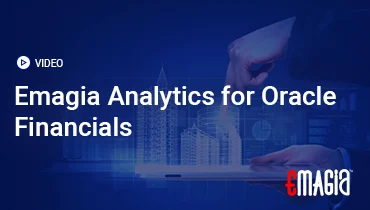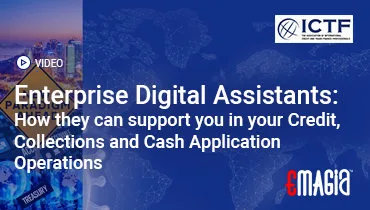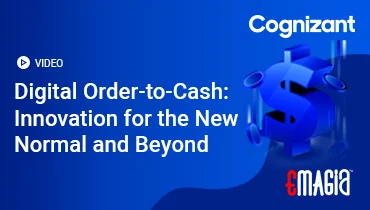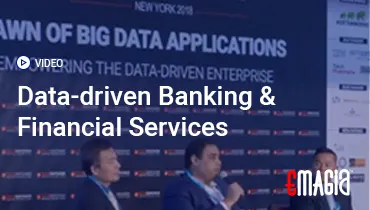Navigating the world of unpaid invoices and overdue accounts can be a significant challenge for any business owner. While a positive customer relationship is always the priority, there comes a time when you have to face the hard truth: some debts will not be paid without professional intervention. This is where a debt collection agency comes in. But how do you find the right one? How do you know what to look for? This guide will serve as your ultimate resource for a successful Debt Collection Agency (DCA) Search, giving you the knowledge and tools to confidently recover your outstanding receivables.
Understanding What Is a Debt Collection Agency and Its Role
Before diving into the intricate details of finding and hiring a professional, it’s crucial to understand the fundamentals. So, what is a collection agency? In simple terms, a collection agency, often referred to as a collections agency or DCA, is a specialized company that works on behalf of creditors to recover unpaid debts from individuals or businesses. They are the experts you call upon when your own internal efforts to secure payment have failed. Think of them as a third-party intermediary, bridging the gap between you, the creditor, and the debtor. Their primary goal is to retrieve the owed money, allowing you to focus on your core business operations.
A collection company or collection agency def can be expanded further. These firms are not just about making calls and sending letters; they are a critical part of the financial ecosystem, ensuring that credit and commerce can function smoothly. Without them, businesses would have far less recourse for recovering losses from delinquent accounts, which could stifle growth and innovation. The scope of a collection agency’s work can be quite broad, covering everything from unpaid credit card bills and medical debts to commercial invoices and small business loans. Their function is to apply their expertise, resources, and legal understanding to a problem that you, as a business owner, may not have the time or specialized skill set to solve.
How Do Debt Collection Agencies Work? A Step-by-Step Overview
The process of how a debt collection agency works is often misunderstood. It’s not a singular, aggressive act, but rather a structured and multi-phased approach governed by strict regulations. When a business, like yours, decides to hire a collection agency, you essentially transfer the responsibility for a delinquent account to them. This typically happens after an account has been past due for a certain period, usually 90 to 180 days, and your internal team has exhausted its own attempts.
The first step is for the agency to receive and verify the debt information you provide. They’ll need details such as the debtor’s contact information, the original amount owed, and the history of communications. Once the debt is formally placed, the agency begins its methodical recovery process. This usually starts with a demand letter, often referred to as a “validation notice,” which informs the debtor that the debt has been placed with a third-party agency and provides them with a 30-day window to dispute the debt.
Following this, the agency will attempt to make contact through various channels—phone calls, emails, and sometimes even text messages. Their approach is designed to be persistent but compliant with laws like the Fair Debt Collection Practices Act (FDCPA). They will try to understand the debtor’s situation and, in many cases, negotiate a payment plan that is mutually agreeable. This is often a more effective strategy than a simple demand for full payment, as it increases the likelihood of a successful recovery. The goal is to collect the debt while maintaining a professional and ethical approach. Understanding how do collection agency work is the first step in appreciating the value they can bring to your business.
For Businesses: A Detailed Guide to Hiring a Collection Agency
The decision to hire a debt collection agency for small business is not one to be taken lightly. It’s a critical business move that can have a significant impact on your cash flow and, if handled improperly, your brand reputation. This is why a meticulous Debt Collection Agency Search is so important. When you’re looking for a partner to help with small business debt recovery, you need to be thorough.
First and foremost, you need to do your research. The market for collection companies and collection agencies for small businesses is vast. You need to identify agencies that specialize in your specific industry. For example, if you are a healthcare provider, you’ll want to find a real estate collection agency with experience in medical billing. If you’re a B2B service provider, you should look for a firm with a strong track record in collecting business debts.
After you’ve created a shortlist, it’s time to vet them. A key part of the search is to verify the legitimacy and credibility of the potential agency. Are they licensed and bonded in your state? Do they have a good reputation with the Better Business Bureau (BBB)? Ask for references and case studies. You want to make sure you are partnering with an ethical and effective agency that will represent your business professionally. The goal of this partnership is to recover your money, not to create a new set of problems.
You should also take the time to understand the different types of services they offer. Some agencies provide a full suite of debt collection services, while others may specialize in specific areas. You may need a collection agency for small business near me to handle local clients, or a larger firm for nationwide coverage. Don’t be afraid to ask detailed questions about their processes, technology, and communication strategies. The more you know, the better prepared you’ll be to make an informed decision and find the right partner for your small business debt collection needs.
For Consumers: What to Expect When a Collection Agency Contacts You
On the other side of the equation, it is equally important for individuals to know what to do if they find themselves on the receiving end of a collection agency’s efforts. The first thing to remember is that you have rights. The Fair Debt Collection Practices Act (FDCPA) is a federal law that protects consumers from abusive and unfair collection practices. Understanding what a collection agency can and cannot do is your first line of defense.
When you receive a call or letter, do not panic. The first step is to verify the debt. A legitimate agency must provide you with a validation notice within five days of their initial contact. This notice should include the amount of the debt, the name of the creditor, and a statement that you have 30 days to dispute the debt. If you believe the debt is not yours, or the amount is incorrect, you must send a written dispute within that 30-day window. This is a crucial step that can stop collection efforts until the agency can provide verification of the debt. This is an important part of knowing what is a collection agency and how to deal with them.
Another key question many people ask is: do you have to pay debt collectors? The short answer is yes, if the debt is legitimate and you owe it. Ignoring the issue will not make it go away. It could, in fact, lead to legal action and a negative impact on your credit report. However, you should never feel pressured to pay a debt you are unsure about. You have the right to request verification, and you have the right to negotiate a payment plan. Communication is key. By being proactive and understanding your rights, you can handle the situation professionally and find a path forward.
The Financials of Debt Collection: How Do They Make Money and What are the Charges?
One of the most common questions from both businesses and consumers is related to the financial side of debt collection. How much do debt collectors make money? How much do collection agencies pay for debt? And what are the fees involved? Understanding these financial models is essential for making smart decisions.
For businesses, most agencies operate on a contingency fee basis. This means they only get paid if they successfully collect the debt. The debt collection agency charges or fees are a percentage of the amount recovered, typically ranging from 20% to 50% depending on the age and size of the debt. The phrase “No Collection, No Fee” is a common one in this industry. This model aligns the agency’s goals directly with your own, as they are motivated to recover as much as possible. It is a cost-effective way to get help with unpaid invoice debt collection.
Some agencies may also offer a flat fee collection agency service, where you pay a fixed amount upfront for a set of actions, regardless of the outcome. This model is often used for early-stage or “pre-collection” services, where the agency acts as a softer reminder on your behalf.
As for how do collection agencies make money, they essentially profit from the percentage of the debt they collect. In some cases, a creditor may sell the debt to a third-party debt collection agency for a fraction of its face value. This is known as “debt buying.” The collections company then becomes the new owner of the debt and profits by collecting more than what they paid for it. This is a different model from the contingency fee arrangement and is important to distinguish.
Legal & Ethical Frameworks: Your Rights and Responsibilities
The world of debt collection is heavily regulated to protect both creditors and debtors. For businesses, knowing these regulations is critical for a responsible Debt Collection Agency Search. The primary legal framework in the United States is the Fair Debt Collection Practices Act (FDCPA), which governs how third-party debt collectors can interact with consumers.
Key FDCPA provisions include:
- Time and Place Restrictions: Debt collectors generally cannot contact you before 8 a.m. or after 9 p.m.
- Prohibition of Harassment: They cannot use abusive language, threaten violence, or make excessive phone calls.
- Prohibition of False Statements: They cannot misrepresent themselves, the amount of the debt, or the consequences of non-payment.
- Communication with Third Parties: They generally cannot discuss your debt with anyone other than you, your spouse, or your attorney. They can, however, contact others to find your location, but can’t disclose the nature of their business.
When you hire a collection agency, you are essentially delegating the responsibility of adhering to these rules to them. That is why it is so important to choose a reputable and compliant partner. For a business, a violation of the FDCPA by your collections agency could lead to legal issues and reputational damage.
For consumers, knowing your rights is your most powerful tool. You can use these protections to your advantage by documenting all communications, demanding verification of the debt, and sending a written request to stop communication if you wish. This helps you maintain control over the situation and ensures you are treated fairly.
Choosing the Right Partner: Types of Collection Agencies and Services
The term “collection agency” is a broad one, and the industry is filled with different types of firms and services. A successful Debt Collection Agency Search requires you to understand these distinctions to find the best fit for your needs, whether you are a small business or a large corporation.
One of the most important classifications is based on the type of debt they handle. Some agencies specialize in B2B (business-to-business) collections, focusing on commercial debt collection and unpaid invoices. Others focus on B2C (business-to-consumer) debts, such as medical bills or credit card debt. There are also specialized firms that handle niche areas like real estate collection agency services.
Another key distinction is the fee structure. We’ve already discussed the contingency fee and flat fee models. A third option is a hybrid approach. Some agencies may offer a “pre-collection” service for a flat fee and then shift to a contingency model if the initial efforts are unsuccessful.
Finally, you have the option of a 3rd party debt collection agency versus a first-party collection service. A first-party service is typically a company’s own internal collections department. A third-party agency is the external firm you hire. The agency debt collection model is the most common. When a third party is involved, you may be asked to choose between a full-service firm that handles all aspects of the recovery process, including skip tracing and legal referrals, or a more specialized company.
Regardless of the type, when you are looking to hire a collection agency, you must evaluate their experience, reputation, and commitment to compliance. Ask about their success rates and how they handle disputes. The best agencies will have transparent processes and a proven track record.
Case Studies and Best Practices: A Deeper Look at Small Business Debt Recovery
Let’s take a look at some practical examples to illustrate the importance of a professional small business collection agency.
Case Study 1: The Small Business with Recurring Late Payments
Case Study 2: The E-commerce Store with a High Volume of Unpaid Orders
Best Practices for Businesses
- Exhaust your own efforts first. A debt collection agency should be your last resort, not your first call. Send multiple reminders and make a few phone calls yourself. This also helps you preserve client relationships.
- Provide complete documentation. The more information you give the agency, the better their chances of success. This includes copies of invoices, contracts, and communication logs.
- Communicate with your agency. Stay in touch with your point of contact at the agency. Ask for regular updates on their progress.
- Choose a reputable partner. This is the most important step. Don’t just go with the cheapest option. Look for a firm with a strong reputation, proper licensing, and a transparent process.
How Emagia Helps with Business Collections
In the modern financial landscape, the challenges of managing accounts receivable and collections have become increasingly complex. While a debt collections agency is a valuable tool, many businesses are now seeking proactive, technology-driven solutions to prevent debts from ever reaching the collections stage. This is where a platform like Emagia becomes an indispensable asset.
Emagia provides an AI-powered accounts receivable automation platform that revolutionizes the entire credit-to-cash process. Instead of waiting for debts to become delinquent and then hiring a debt recovery agency near me, Emagia’s solution empowers businesses to take control from the very beginning. Our platform uses intelligent automation to streamline credit management, billing, and invoice-to-cash processes. It’s about getting ahead of the problem, not just reacting to it.
Our software helps businesses manage their collections payments more efficiently. It can automate the sending of personalized reminders, create dynamic payment portals for customers, and use predictive analytics to identify at-risk accounts before they become a problem. This proactive approach significantly reduces the need for external collection services and allows you to maintain a positive, professional relationship with your clients. For companies that still need to engage a collections agency, Emagia can help by providing a seamless data transfer to the agency and offering a single source of truth for all collections-related activities. It’s a comprehensive solution for companies that are serious about improving their cash flow and reducing bad debt write-offs.
In essence, Emagia shifts the focus from reactive debt recovery to proactive financial health. It’s about using the power of AI and automation to make your internal processes so efficient that the need for a collection service is minimized. This not only saves you money on agency fees but also protects your valuable customer relationships.
FAQs About Debt Collection and Agencies
What is the difference between a debt collector and a collection agency?
A debt collector is an individual who works for a debt collection agency or a creditor’s in-house department. A collection debt agency is the company that employs debt collectors to recover debts.
Can a collection agency take legal action against me?
Yes, if all other collection efforts fail and the debt is legitimate, a collection agency can initiate legal action to collect the debt.
What happens after you pay a collection?
When you pay a collection, the agency should report the debt as “paid” to the credit bureaus. This can help improve your credit score over time. Always get written confirmation that the debt is paid collection.
What are some tips for dealing with a collection agency?
Communicate in writing, know your rights under the FDCPA, verify the debt, and keep detailed records of all your interactions.
How can a small business avoid needing a collection agency?
Implement clear payment terms, send regular and professional invoice reminders, and maintain open communication with clients. Using a modern accounts receivable platform can also help you automate these processes and get paid faster.
How do I find a reputable collection agency near me?
Start with a search for “collections agency for small business” or “debt recovery agency near me.” Look for firms with good reviews, a long history, and proper licensing. Check with the Better Business Bureau for their reputation and any complaints.
What are the typical charges for debt collection agencies?
Most agencies work on a contingency basis, charging a percentage of the amount they successfully recover. The fee can range from 20-50% depending on factors like the age and size of the debt.
What can a collection agency do to collect a debt?
A collection agency can contact you by mail, phone, email, or text to collect a debt. They can report the debt to credit bureaus, and if you don’t pay, they may take legal action. They cannot harass you, use abusive language, or make false threats.
What are my rights if a collection agency contacts me?
You have the right to request verification of the debt, to stop all communication by sending a written request, and to be treated fairly and respectfully. The FDCPA prohibits abusive and deceptive practices.
Is it better to hire a third-party collection agency or use an in-house team?
For many businesses, a 3rd party debt collection agency is a more cost-effective and efficient solution. They have the expertise, resources, and legal knowledge to handle collections, freeing up your internal team to focus on core business functions.
Conclusion
A successful Debt Collection Agency Search is about more than just finding a company to collect your money. It’s about finding a strategic partner that can help you maintain your financial health, preserve your brand reputation, and free up your time and resources to focus on what you do best. By understanding the fundamentals of how these agencies work, knowing your rights and responsibilities, and carefully vetting potential partners, you can confidently navigate the world of collections and ensure that you get paid for the work you do. Whether you are a small business owner looking for assistance with unpaid invoices or an individual seeking to resolve an old debt, this comprehensive guide provides you with the information you need to make informed decisions.



